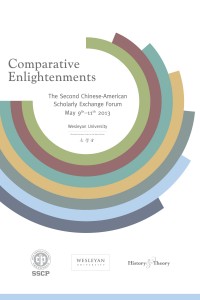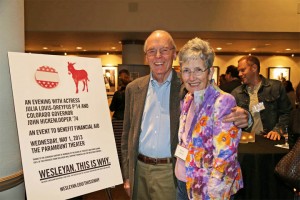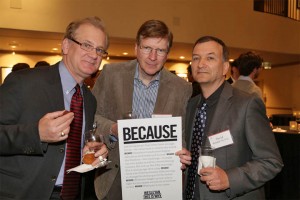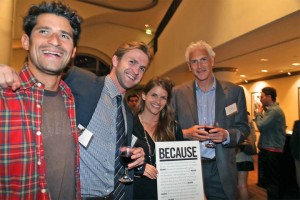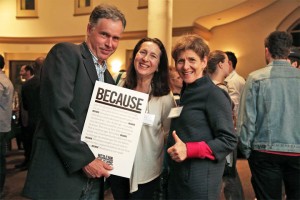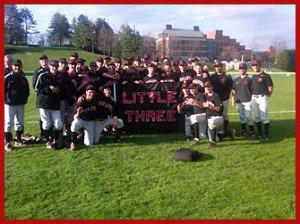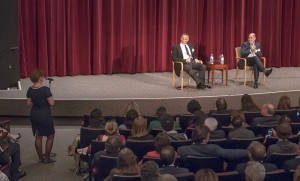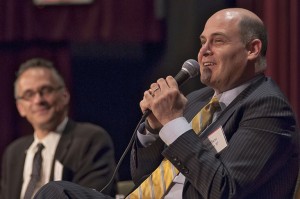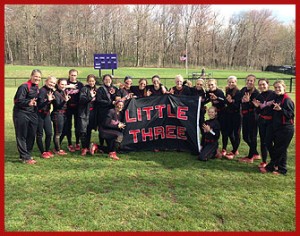From Sunday’s WashingtonPost
Review of Anti-Judaism: The Western Tradition. By David Nirenberg. Norton. 610 pp. $35
Oh, the Protestants hate the Catholics,
And the Catholics hate the Protestants,
And the Hindus hate the Muslims,
And everybody hates the Jews.
So sang Tom Lehrer in his satirical song “National Brotherhood Week.” It’s no news that even those who preach “love thy neighbor” have often combined their striving for community with the hatred of a scapegoat, the Jews. David Nirenberg’s “Anti-Judaism” is a thorough, scholarly account of why, in the history of the West, Jews have been so easy to hate. And this story goes back a very long way.
Nirenberg returns to ancient Egypt to examine traditions that portray Jews as “enemies of Egyptian piety, sovereignty, and prosperity.”This was already old in the 7th century BCE! Ancient Greeks and Romans would have their Jews, too; they found use for an “anomalous” people who stuck together and followed their own rules, who were “neither disenfranchised nor citizen, neither conquered nor conquering, neither powerless nor free.” Over the centuries, when there was trouble in the kingdom, be it corruption or military threat, famine or political chaos, pagan ideologues developed a handy solution: Attack the Jews.
Jews were useful for those who were contending for power in the ancient world, and the Egyptian model of scapegoating was often repeated. But it was the Christians who refined anti-Judaism into a core theological and political ideology. Christianity had a particular problem: to show that it had overcome Judaism — overcome its adherence to the laws of the “old” testament, overcome its tribal particularity with evangelical universalism. The idea of Judaism — together with the fact that there were still people in the world who chose to remain Jews — was an affront to that universalism. “To the extent that Jews refused to surrender their ancestors, their lineage, and their scripture, they could become emblematic of the particular, of stubborn adherence to the conditions of the flesh, enemies of the spirit, and of God.”
Throughout the centuries theologians returned to this theme when they wanted either to stimulate religious enthusiasm or quash some perceived heretical movement. Not that you needed any real Jews around to do this. You simply had to label your enemies as “Jews” or “Judaizing” to advance the purity of your cause. In the first through fourth centuries, Christians fighting Christians often labeled each other Jews as they struggled for supremacy. And proclaiming your hatred of the Jews became a tried and true way of showing how truly Christian you were. Centuries later, even Luther and Erasmus agreed that “if hatred of Jews makes the Christian, then we are all plenty Christian.”
Islam followed this same pattern of solidifying orthodoxy by stoking anti-Jewish fervor. Muhammad set Islam, like Christianity, firmly within an Abrahamic tradition, but that made it crucial to sever the new religion from any Judaizing possibilities. Rival Islamic groups, like rival forms of Christianity, often painted their adversaries as hypocritical Jews scheming to take the world away from spiritual truths essential for its true salvation.
Nirenberg shows how consistently the struggle for religious and political supremacy has been described as a struggle against the “Jews.” The quotation marks are especially important as his account moves beyond the medieval period, because between 1400 and 1600 Western Europe was more or less “a world free of Jews.” Banished from most countries, and existing only in the tiniest numbers through special exemptions, actual Jews were hardly ever seen. But it was in this period that “Christian Europe awoke haunted by the conviction that it was becoming Jewish.” In this period of cultural change and doctrinal and political disputes, patterns as old as the age of the pharoahs were reactivated: My adversaries must be extinguished for the polity to be purified; my adversaries must be Jews. And in early modern European eyes, the adversaries were especially dangerous if they were secret Jews who appeared to be Christian. Were Jews hiding everywhere?
Martin Luther brought this rhetoric to a fever pitch. In 1523 he accused the Roman Church of becoming “more ‘Jewish’ than the Jews,” and as he grew older he tried to convince his contemporaries that “so thoroughly hopeless, mean, poisonous, and bedeviled a thing are the Jews that for 1400 years they have been, and continue to be, our plague, pestilence, and all that is our misfortune.” Don’t believe in conversions, the aged Luther urged; the only way to baptize Jews was by tying millstones around their necks.
Nirenberg’s command of disparate sources and historical contexts is impressive. His account of the development of Christianity and Islam is scholarly yet readable. And his portrayal of the role that Judaism has played as a foil for the consolidation of religious and political groups is, for this Jewish reader, chilling. Nirenberg is not interested, as he repeatedly insists, in arguing that Christianity and Islam are “anti-Semitic.” Instead, he is concerned with tracing the work that the idea of Judaism does within Western culture. He shows that many of the important conceptual and aesthetic developments in that culture — from Saint John to Saint Augustine to Muhammad, from Shakespeare to Luther to Hegel — depend on denigrating Jews.That’s what’s so chilling: great cultural achievements built on patterns of scapegoating and hatred.
In the modern period, revolutionaries and counter-revolutionaries continued to employ “the Jewish problem” as something to be overcome. “How could that tiny minority convincingly come to represent for so many the evolving evils of the capitalist world order?” Nirenberg asks. He shows that for thousands of years the patterns of anti-Judaism have evolved to provide great thinkers and ordinary citizens with habits of thought to “make sense of their world.” He doesn’t say that these patterns caused the mechanized, genocidal Nazi war against the Jews in the 20th century, but he argues convincingly “that the Holocaust was inconceivable and is unexplainable without that deep history of thought.”
Presaging Tom Lehrer, Sigmund Freud in 1929 wrote ironically that Jews, by being objects of aggression, “have rendered most useful services to the civilizations of the countries that have been their hosts; but unfortunately all the massacres of the Jews in the Middle Ages did not suffice to make that period more peaceful and secure for their Christian fellows.” Even when “everybody hates the Jews,” patterns of intolerance and violence remain intact. Nirenberg offers his painful and important history so that we might recognize these patterns in hopes of not falling into them yet again.



